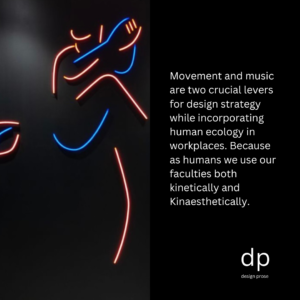Pallavi: Do you think vulnerability can be easy to talk about but difficult to practice. A culture which does accept failures and mistakes, are they good to survive the longevity of the organization. Please explain in detail.
Sameer: Yes, vulnerability can be difficult to practice because in corporate life, we are hardwired to always look in control and on top of things. That said, I think it is an important leadership trait.
Being vulnerable for me is not being afraid to say you don’t know (but that you want to learn) and not being afraid of bringing emotion into the workplace. The only way to learn is to ask questions and one should never shy away from doing this. While you may feel reluctant to ask in large forums, don’t hesitate to follow up on a one-on-one basis. The more clarity one has on an issue, the better the decisions that are made.
Secondly, we should have a leadership style which combines leading with the head (intellect) and the heart (emotion). Organizations are ultimately made up of people and people relate to emotions at a fundamental level. Try and make an effort to get to know the individual behind the corporate persona. In my view, this gives you a far more rounded view of an individual and helps you relate to them much better. We cannot really divorce who we are in our personal life from our professional life.
There is enough and more evidence that authentic leaders, who do not shy away from exposing their vulnerabilities and lead from their heart, often inspire greatness.
Pallavi: Recently, there has been a heated debate on nepotism in India. Nepotism percolates not just in any one industry but it’s also a very cultural response to favoritism in India. Do you think it pervades Indian work culture to its own harm. It yes, please explain your learnings and share your thoughts on how it can be countered to let better talent rise which is better for the growth story.
Sameer: I would like to focus my answer not so much on favoritism but rather the human tendency to be with people who mirror ourselves: beliefs, thoughts, backgrounds and so on. That is why Inclusion & Diversity is such an important theme. We need to drive a culture that values diversity in all its facets: gender, ethnicity, sexual orientation, race, thought process, opinions, and so on, and inculcate a mindset of inclusion. There is a lot of research that talks about the financial benefits of being diverse but at its core—it’s the right thing to do. Everyone would love to be part of an organization that does not work on assumptions and stereotyping, and allows you to bring your whole self to work and create an environment of psychological safety.
Pallavi: Have you ever misjudged a character of a team member or a potential leader you hired and they stunned you in their dealings and work so much so that it baffled you at your judgment in hindsight. What were your tough learnings out of this?
Sameer: I am sure all of us have wrongly judged people from time to time and have learned to hone our instincts from such experiences.
I would like to narrate a positive experience, the learning from which has always stayed with me. In one of my roles I was a BU Head and the Business HR Partner assigned to me was a relatively inexperienced individual. It is sometimes easy to subconsciously, or consciously, assume that a seniority mismatch between two individuals would lead to a mismatch in thought process (not because of any intellectual shortcomings but just because of the difference in experience). I couldn’t have been more wrong. This lady was one of the better HR individuals I have dealt with. Great thought process, a great sounding board with some really good insights into business issues. I used to tell her she is destined for greater things and sure enough, today she is the HR leader for a very large division of a large MNC.
This experience taught me not to think of tenure or “gray hair” as being the only determinant of someone’s ability to add value.
Pallavi: How crucial it is to define, articulate and practice culture for an organization. Do you think, it can sometimes get compromised in view of short term gains of profitability and quick gains. Please elaborate your take on it.
Sameer: Organizational culture is a key differentiator in my view. It is easy to replicate “hard infrastructure” such as buildings, policies, processes, salary levels and so on, but “soft infrastructure”, like culture, is unique to an organization. When people say they “feel” an organization is friendly, execution oriented, open door, welcoming, a meritocracy, hierarchical, etc., what they are feeling is the culture.
Culture is nothing but a set of behaviors that are replicated over a period of time and get to be known as the “personality” of an organization. Behaviors are typically modelled on the stated values of an organization.
It is the role of leaders to model the right behaviors and set the tone from the top, in terms of the culture they want to nurture in an organization. People will take their cue on what is accepted or otherwise from the way leaders act and behave, not on what they say is important. If cultures are not consciously created, they will end up forming on their own.
It is rightly said that culture is set by the worst behavior a leader is willing to accept.
Pallavi: Leadership is not a title or a position, it’s a choice one makes everyday as a leader. But somewhere, we revere position and title so much that it can put blind spots for leaders leading people at a cost of organization growth. Have you experienced this in your tenure and how did you manage to decipher and fix it.
Sameer: For me, some of the fundamental tenets of leadership are humility, approachability and accessibility. What leadership entails is best explained by the quote from the movie Spider-Man, “with great power comes great responsibility”. For an organization to stay in touch with what its employees are experiencing, you need to inculcate a culture of transparency and trust, which encourages people to say what is on their mind. This is best achieved by having a grounded and approachable leadership style. Leaders need to remember that their success is the sum total of the efforts of the people they manage. To keep yourself grounded, always ask yourself “if I was to be elected by my team, would they still choose me?”.
Pallavi: Do you see this pandemic, as a challenge or an opportunity for a better tomorrow. Please explain your stand on why you think so.
Sameer: Every impediment or disruption poses some challenges and presents opportunities. Typically, challenges are short term and immediate, opportunities are long term and more enduring. I see this pandemic leading to some significant shifts in the way work is done and delivered. It has already catalyzed the adoption of technology and digitization. The broader acceptability of working remotely and from home will potentially open new talent markets. It will lead to more innovation in the space of remote learning, collaboration tools, productivity technology, etc. With more organizations adopting working from home as a norm rather than an exception, we should hopefully see a decongestion of our cities over time.




